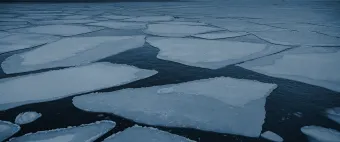Geopolitical Features, Common Interests and the Climate Crisis: The Case of the Arctic

Geopolitical Features, Common Interests and the Climate Crisis: The Case of the Arctic
Executive summary
In the 1990s an inspiring sense of a “new North” became apparent in Arcticrelated ideas and innovations that indicated the end of the Cold War period. This included arms control initiatives, cross-border cooperation and sustainability “to decrease military tension and increase political stability”, an emerging environmental awakening among peoples and societies, knowledge-building by indigenous peoples and the scientific community, and new forums for opening up discussions on regional development. The Arctic seemed to be in a state of constant transformation (geo)politically, economically, culturally and environmentally. Some of the outcomes of these processes were impressive, transforming the Arctic from a site of military tension to one reflecting geopolitical stability. When analysing this transformation and the ways in which the Arctic states reconstructed their geopolitical reality prior to 24 February 2022, the main conclusion is that this would not have been possible without key features of Arctic geopolitics, security and governance creating suitable conditions for cross-border cooperation, which correspondingly increased stability. In the same way, cooperation, mostly in terms of fields of low political interest, was made possible because the eight Arctic states shared similar interests.
But now this transformation, which is also called the “Arctic model”, is threatened by a new transformation from a state of high geopolitical stability to one characterised by the uncertainties of the climate crisis and new East-West tensions, resulting in a pause in pan-Arctic cooperation during which the Arctic Council has not been able to return to business as usual.
The focus of this Geneva Paper, based on the author’s previous studies and personal observations after the Russian invasion of Ukraine in February 2022, is this new transformation and its influences on cooperation. The aim is to assess whether the fundamentals of the previously applicable common interests are still valued, and to what extent they could be used as the means for confidence-building in the region. Similarly, if the fundamentals of the special features of Arctic geopolitics, security and governance are in place, the question then becomes to what extent they could be interpreted as prerequisites for more widespread cooperation and geopolitical stability. Finally, if the search for stability that was the original ultimate aim of the Arctic states and Arctic indigenous peoples were still valued, would it motivate the Arctic states’ governments to more effectively align their policies when facing the climate crisis. This could be done by integrating cooperation on environmental protection, climate change mitigation, and science into their climate and foreign policies. Much is clearly at stake, for if we lose the region’s human-made peace dividend that was consciously built during the 35 years before February 2022, then the multiple crises and world disorder that are looming and threatening the entire world community would be much more difficult to resolve.
Dr Lassi Heininen is a Professor (emeritus) of Arctic Politics, Visiting Researcher at Aleksanteri Institute, University of Helsinki, the Editor of The Arctic Yearbook, the Director of Calotte Academy and Leader of UArctic TN on Geopolitics & Security. His research fields include international relations, geopolitics, security studies, environmental politics, and Northern European and Arctic studies. He chairs the GlobalArctic Mission Council of the Arctic Circle. He supervises PhD candidates, publishes widely in and acts as a reviewer for international journals and publications.
Disclaimer: The views, information and opinions expressed in this publication are the author’s own and do not necessarily reflect those of the GCSP or the members of its Foundation Council. The GCSP is not responsible for the accuracy of the information.
